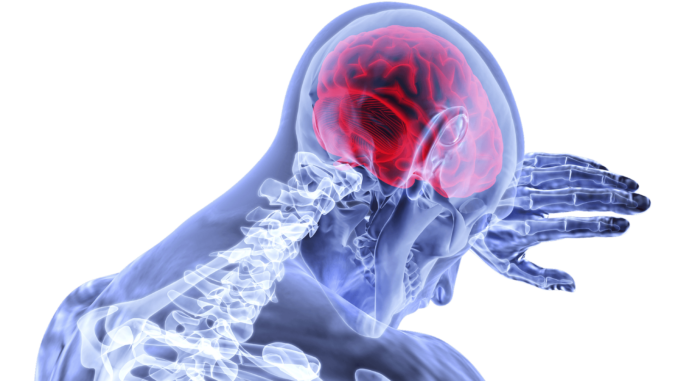
Doctors are warning that strokes in young people are increasing, and even people in their 20’s are at risk.
A stroke which is normally associated with older people happens when the blood supply to part of the brain is cut off.
They doctors claim that younger people are increasing their risk because of their lifestyles and, following an uptick in cases, are now urging young adults to be aware of the deadly signs of a stroke.

BYPASS THE CENSORS
Sign up to get unfiltered news delivered straight to your inbox.
You can unsubscribe any time. By subscribing you agree to our Terms of Use
The experts make no mention of adverse reactions to the covid vaccinations.
The Sun reports: Medics at Norton Healthcare said younger people now have more risk factors associated with stroke – as many lead a sedentary lifestyle.
They said that the younger population is now also dealing with obesity, high cholesterol, hypertension, diabetes, and sleep apnoea.
The experts said that women who take the contraceptive pill and experience migraines with an aura are also at a greater risk of a stroke.
Stroke neurologist Dr Bryan Eckerle said that for many people, a stroke won’t be painful and revealed the six things you must watch out for – especially in younger people.
These are:
- Balance – experts say a loss of balance and feeling dizzy are signs of a stroke
- Eyes – a change in vision in one or two eyes
- Face – a droopy face or uneven smile
- Arms – if one drops down when raising both arms or a weakness or numbness occurs
- Speech – slurred words or struggling to speak
- Time – be mindful of how long these symptoms have been happening for, the medics says that time lost equals brain lost.
f you think someone is having a stroke you need to ring 999 in the UK and 911 in the US in order to get emergency help.
Dr Eckerle added that the quicker someone gets treatment, the more likely they are to live and to make a decent recovery.
“People having heart attacks are having chest pain and having difficulty breathing and they get medical attention.
“Strokes are often painless, sometimes get ignored written off or people think will pass on their own.
“Once that acute treatment window or that option to give IV medicine or surgery has passed it becomes a much longer road to recovery”, he todl WAVE NOW.
There are two main types of stroke.
An ischaemic stroke is the most common, accounting for 85 per cent of all cases, and is caused by a blockage cutting off the blood supply to the brain.
A haemorrhagic stroke is caused by bleeding in or around the brain, when a weakened blood vessel supplying the brain bursts.
If any stroke symptoms occur for less than a few hours, you could be suffering from a transient ischaemic attack (TIA).


